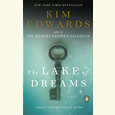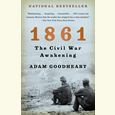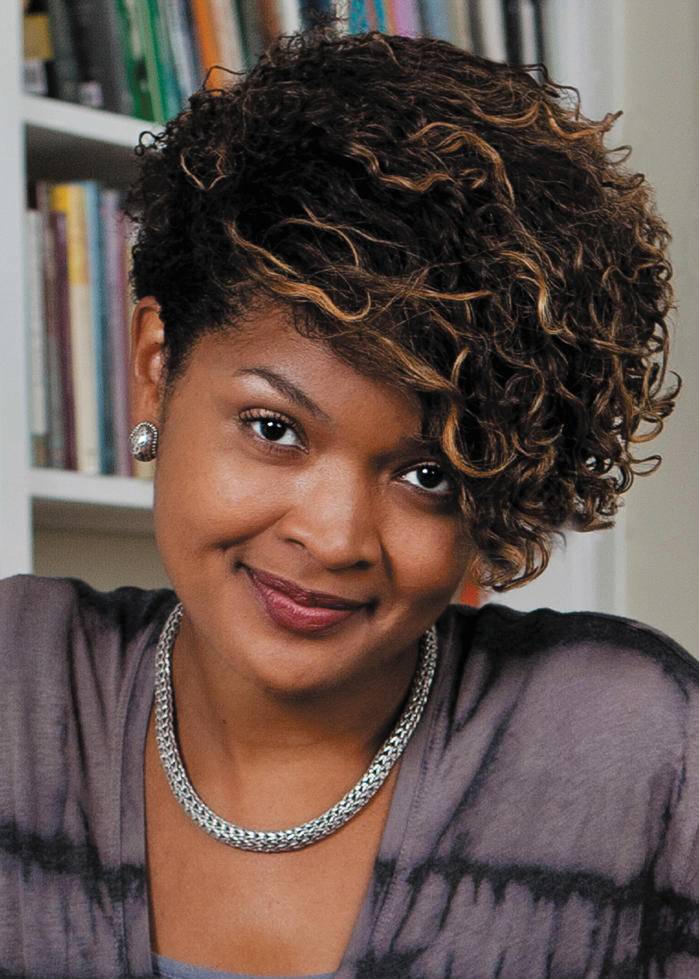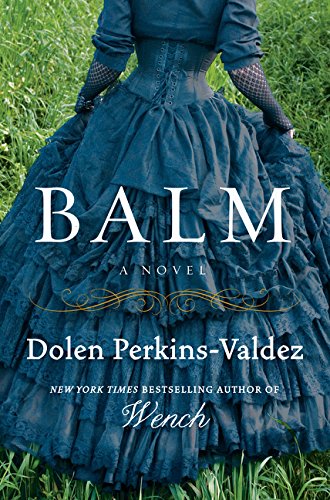The Consequences of Certainty
Acclaimed scholar Randall Fuller discusses the impact of the Civil War on Walt Whitman’s poetic vision
In From Battlefields Rising: How the Civil War Transformed American Literature, Randall Fuller chronicles the evolution of Walt Whitman’s poetic vision of heroic American identity, as his experiences as a nurse in battlefield hospitals shattered his optimism for the future of his beloved country. “The poet who had tried to bridge the chasm between art and life, body and soul, now wrote poems that seemed simply wounded,” Fuller writes. In Whitman’s own words, it opened “a new world somehow to me, giving closer insights, new things, exploring deeper mines than any yet, showing our humanity.” Even in the face of abject suffering, however, the optimist in him remained undaunted: “Despite the transformations wrought in himself and in America, Whitman found hope in the hospitals,” Fuller explains. “The dimly lit wards illuminated areas of compassion he scarcely knew existed”—areas that “Whitman hoped would help to restore the country to peace and wholeness.”
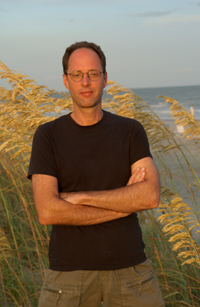 In a visit to Rhodes College in Memphis on April 11, Fuller will discuss how this great poet of American identity and experience was altered from an ardent abolitionist’s bellicose embrace of the war at its outset to a darker, more nuanced vision in the wake of the prolonged carnage and his intimate acquaintance with the war’s casualties. “Confident as he was in his ability to help individual soldiers,” Fuller writes, Whitman “was no longer so certain about the role of poetry in this healing.” This ambivalence, along with the humbling of his early enthusiasm for the war, led Whitman to learn that “death, not poetry, had knit the nation together.” And this understanding, in turn, made him capable of writing the transcendent lines of “When Lilacs Last in the Dooryard Bloomed” and “Oh Captain! My Captain!”—verses that, in eulogizing the slain Lincoln, also secured their author his reputation as the quintessential voice of American experience and the greatest poet of his age.
In a visit to Rhodes College in Memphis on April 11, Fuller will discuss how this great poet of American identity and experience was altered from an ardent abolitionist’s bellicose embrace of the war at its outset to a darker, more nuanced vision in the wake of the prolonged carnage and his intimate acquaintance with the war’s casualties. “Confident as he was in his ability to help individual soldiers,” Fuller writes, Whitman “was no longer so certain about the role of poetry in this healing.” This ambivalence, along with the humbling of his early enthusiasm for the war, led Whitman to learn that “death, not poetry, had knit the nation together.” And this understanding, in turn, made him capable of writing the transcendent lines of “When Lilacs Last in the Dooryard Bloomed” and “Oh Captain! My Captain!”—verses that, in eulogizing the slain Lincoln, also secured their author his reputation as the quintessential voice of American experience and the greatest poet of his age.
Winner of the Phi Beta Kappa Society’s 2011 Christian Gauss Award for literary criticism, From Battlefields Rising masterfully illuminates the transformative effect of the Civil War on the full range of America’s nascent literary culture. Fuller, Chapman Professor of English at the University of Tulsa, explores the impact of the war on all the major writers of the mid-nineteenth century—Douglass, Emerson, and Thoreau; Hawthorne and Melville; Whitman and Dickinson—along with a host of lesser luminaries. He analyzes the significance of familiar figures such as Louisa May Alcott (who, like Whitman, served as a battlefield hospital nurse) alongside obscure or nearly forgotten writers like the ill-fated Theodore Winthrop, burgeoning fiction writer and war correspondent for The Atlantic Monthly; battlefield surgeon Silas Weir Mitchell; and Thomas Wentworth Higginson (best known for his mentorship of Emily Dickinson), who as a colonel commanded the first federally authorized African-American regiment. Randall Fuller’s lucid prose, a compelling argument, and fascinating research make From Battlefields Rising deserving of a place on the shelf of any Civil War buff and may well make it one of the canonical resources for students and scholars of nineteenth-century American literature.
Prior to his visit to Rhodes, Fuller answered questions via e-mail:
Chapter 16: In From Battlefields Rising, you illuminate the many connections between the Civil War and the poets and writers of the American Renaissance, enlarging our understanding of the relationships between the major writers of the period and other writers and editors who saw combat as Union soldiers and officers. Of these writers, however, only two actually saw the carnage first-hand—Walt Whitman and Louisa May Alcott, who served as nurses. Is there any sense in which the war had a similar influence on these formally and stylistically distinct authors?
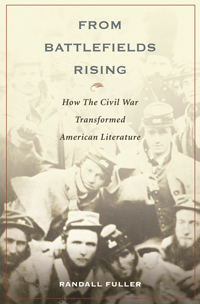 Randall Fuller: Surprisingly, no. Whitman’s poetry was chastened by the war. It became less celebratory, more focused on the unavoidable suffering he witnessed in the hospitals of Washington. Alcott responded in a different way. She maintained a light, humorous approach to her material. In her Hospital Sketches, she didn’t shy away from describing the wounded she nursed, but she was ever on the lookout for the amusing side of hospital life. This was probably her way of trying to keep her readers’ spirits up during a very difficult time.
Randall Fuller: Surprisingly, no. Whitman’s poetry was chastened by the war. It became less celebratory, more focused on the unavoidable suffering he witnessed in the hospitals of Washington. Alcott responded in a different way. She maintained a light, humorous approach to her material. In her Hospital Sketches, she didn’t shy away from describing the wounded she nursed, but she was ever on the lookout for the amusing side of hospital life. This was probably her way of trying to keep her readers’ spirits up during a very difficult time.
Chapter 16: You write that Whitman considered fighting for the Union. What do you suppose led him to choose another form of service?
Fuller: My thoughts about Whitman enlisting are speculative. Shortly after the fighting began, he wrote in his journal that he was preparing to exercise and diet in order to get in shape. I conjecture that he was thinking about enlisting. Why he didn’t join up is a mystery. Perhaps he considered himself too old; he was about forty. Perhaps he thought he might do more good as a poet. After all, he began writing poetic propaganda in support of the Union cause within a few months of the start of the war. Whatever his reason, it wasn’t universally approved of. Thomas Wentworth Higginson, the editor and friend of Emily Dickinson who led an African-American troop of soldiers, believed Whitman was cowardly for staying out of the war.
Chapter 16: You’ve made much of the transition between Whitman’s early Romantic war poems and the more sober, measured verse he produced after it became apparent that the war could go on for years and was not going to end well for either side. Was there a particular moment in Whitman’s life or his work that marked the shift in tone and perspective?
Fuller: I think that happens in December 1862, when he travels to Fredericksburg in search of his wounded brother, George Washington Whitman. George, it turns out, was not seriously wounded, but Whitman got to see the war up close in ways that forever changed his perspective. He visited the field hospital, saw stacks of amputated limbs, and spoke with dozens of soldiers who had fought in one bloody engagement after another. This experience ultimately led Whitman to his stint as a hospital aid, and to the alteration in his poetry we’ve been discussing.
Chapter 16: Whitman is most famous to high-school students and undergraduates as the gushing celebrant of American individualism that features so heavily in the early editions of Leaves of Grass (especially in “Song of Myself”). What became of this poet as a consequence of his experiences in the war?
Fuller: He’s still there, just not so consistently exuberant. Whitman didn’t abandon his peculiar brand of transcendental optimism, but he did come to realize that it didn’t encompass all human experience. A darker strain enters his work, a melancholy that was always there but that now becomes more prominent. To tell the truth, I like the postwar Whitman more than the poet so often taught as a representative American individualist.
Chapter 16: Whitman also endures to young readers as the great eulogist of Lincoln. What impact did seeing Lincoln’s trajectory—his rise, fall, triumph, and martyrdom—have on Whitman’s vision of America in both life and literature?
Fuller: It’s difficult to separate Whitman’s mythmaking about Lincoln from the truth. He claims, for instance, to have seen the president leaving Washington each night on his way to the Soldier’s Home (the equivalent of Camp David in the 1860s), and adds that each man tipped his hat to the other. I find this difficult to believe. What is more compelling is the way in which Whitman saw Lincoln as an emblematic figure of the nation: flung up from the prairie hinterlands, a captain of the ship of state during a tumultuous national storm. And in Lincoln’s assassination he seems to have acknowledged a tragic element in American life and culture.
Chapter 16: Basically all of the great American writers who lived during the Civil War were on the side of the Union; many—especially Emerson, Louisa May Alcott, Harriet Beecher Stowe, and, to a lesser extent, Hawthorne and Melville—actively supported the Union cause. You’re a teacher and scholar living in the South: has the remembrance (and, in some places, the celebration) of the war during its sesquicentennial in any way affected your understanding of its influence on American literature and culture?
Fuller: A lot of people have asked me why I didn’t include Southern writers in my book. Part of the answer is that those writers had few publishing outlets during the war. There was relatively little paper or lead for type below the Mason-Dixon. But the bigger answer is that the authors in the North largely framed the discussion of the war. They saw it as a cosmic morality play in which the forces of good and freedom were aligned against the forces of evil and slavery. What interested me about them was their unavailing certainty that they were right as well as their traumatic encounter with the consequences of that certainty. Most of these writers welcomed a war that promised to restore the Union and free the slaves, but they had no idea that war would prove so deadly and calamitous. As I participate in the remembrance of the war, I find that such moral certainty is still very much with us.
On April 11 at 7 p.m., Randall Fuller will discuss Walt Whitman as part of the Civil War Sesquicentennial Series at Rhodes College in Memphis. The event, which will be held in Hardie Auditorium in Palmer Hall, is free and open to the public. Fuller’s visit is co-sponsored by the English, history, and music departments and by the Spence Wilson Chair in Humanities.

